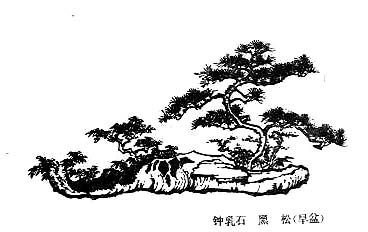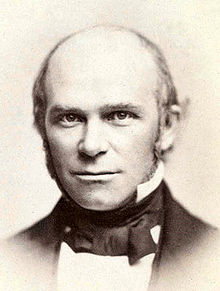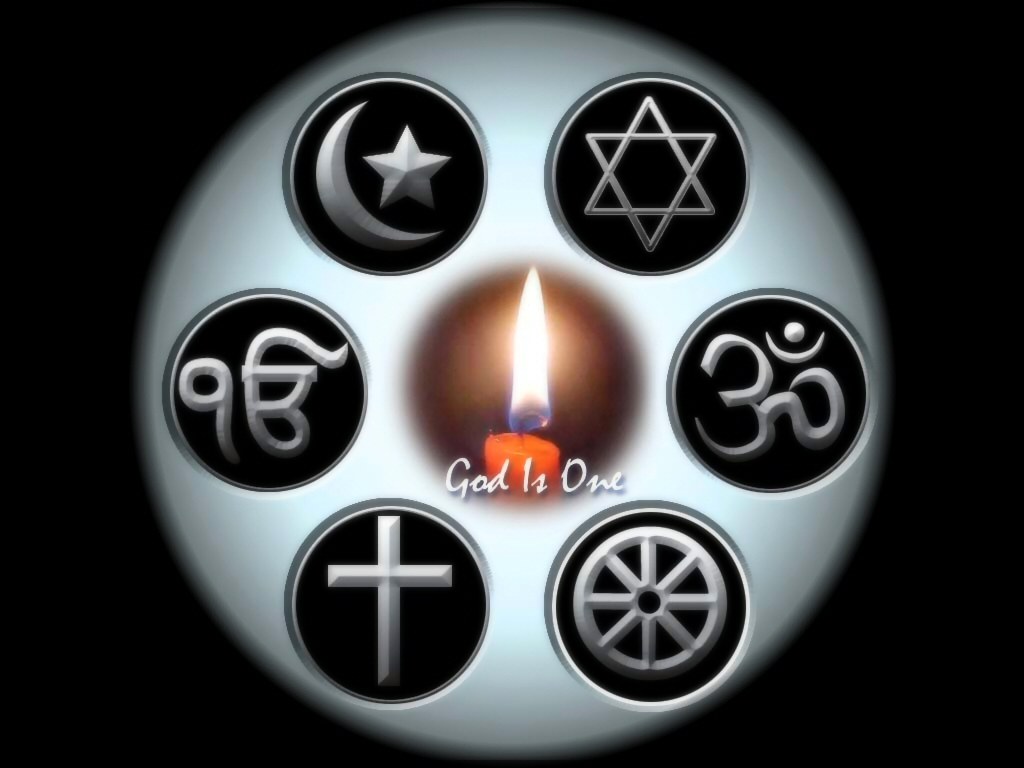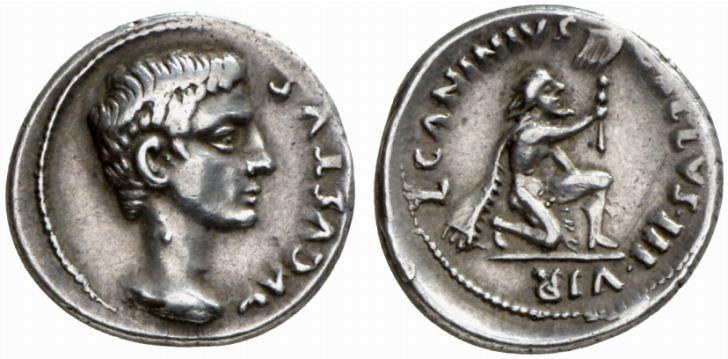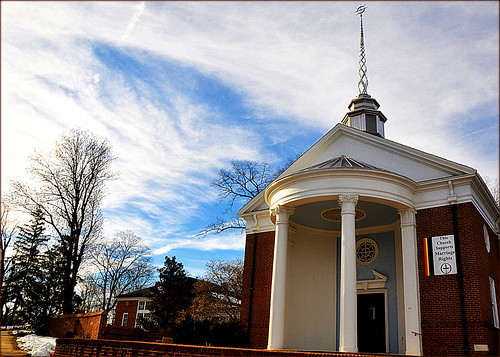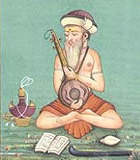


To see the world in a grain of sand
And heaven in a wildflower
To hold infinity in the palm of your hand
And eternity in an hour.
- William Blake
“You will face unforeseen dangers, but also help will come unlooked for.”
- Misquote from J.R.R. Tolkien, Lord of the Rings (Though my memory recalls it as a line Gandalf speaks to Frodo, it is not in the book)
Context Is All
And heaven in a wildflower
To hold infinity in the palm of your hand
And eternity in an hour.
- William Blake
“You will face unforeseen dangers, but also help will come unlooked for.”
- Misquote from J.R.R. Tolkien, Lord of the Rings (Though my memory recalls it as a line Gandalf speaks to Frodo, it is not in the book)
Context Is All
The habits of thought and figures of speech -- the tropes, assumptions, and sensibility -- the "mobile army of metaphors" (Nietzsche) I deploy to meet the reality that comes at me -- indeed, everything about this personality by which I am known to the world is shaped into what it is by my times. If you would know me, then know my time. People born in the same country, but in different times, are truly born into different worlds. What sort of world was I born into?
I was born in 1959, a cusp year. As turning-point years go, 1959 is up there with 1929, 1945, 1968, and 1980, among the most significant transitional years of the 20th century. The playwright Caroline Jackson Smith writes:
1959. As a decade changes, the markers of seismic cultural shifts [appear]. . . As a young man named Cassius Clay wins the Golden Gloves, the boxing game is poised to change forever. The daring, complex innovations of the beat poets and be-bop jazz artists signal a wave of avant-garde resistance to post-war lyricism and patriotism. Castro’s assumption of power in Cuba marks a high point of revolution against imperialism, becoming a beacon of hope for other oppressed peoples. Racial integration pushes the historic boundaries of segregation in the wake of 1954’s Brown v Board of Education decision as the Mexican American population of California begins to rally around the notion of Chicano identity while the long battle for the rights of farm workers begins. As the media creeps more deeply into American lives with the advent of television, John F. Kennedy campaigns for President and the popular music of America is forever changed as early rhythm and blues gives way to soul music while the mambo sweeps the country. 1959. Our American identity broadens and deepens and we begin to be a country of many languages, musics, sexual identities and gendered choices. But as a country steeped in violence we are always struggling to find the love in the fight; to put the blade to the heat.My time, the world into which I was born, the strange and distant realm from which I come and cannot return – was the United States of 1959. Every year, of course, is the transition between all previous and all subsequent, yet cultural change does not move at uniform speed. 1959 was a year of radical and wide-ranging reformation – though the revelers raising their toast to the new year 1960 had little inkling how significant the events of the year just ended would turn out to be.
While Eisenhower’s Presidency was coasting through the seventh of its eight years, new hopes were being conceived. Some would prove misbegotten, others would emerge very changed by the long labor to birth them.
The industrial age was becoming the information age. Symbolic in that transition was a misstep in our proud auto industry: Ford’s Edsel was discontinued in 1959. Much more than symbolic was that the microchip was introduced to the world in 1959.
Meanwhile, our government was misstepping into a conflict that would re-define our relationship with our government, for 1959 was the year the first US soldiers were killed in Vietnam.
Culture
The late 1950s were a time of a working-class subculture of which middle-class whites generally disapproved but would, within a dozen years, be nostalgically romanticizing. The Broadway and movie musical, Grease, was set in 1959.
The price of a bottle of Coca-Cola had stayed at 5 cents for over 70 years -- since 1886. The last year that stores sold nickel Coke: 1959.
In 1959 Grove Press published an uncensored version of Lady Chatterley’s Lover for the first time in the U.S. The D.H. Lawrence novel, which had been completed more than 30 years before, quickly became a number one bestseller, largely due to the publicity generated by US Postmaster General Arthur Summerfield's ban of the book from US mails.
In film, two Jewish characters captured the tensions of the zeitgeist. Ben Hur and The Diary of Anne Frank both received Academy Award nominations for Best Picture of 1959. Ben Hur affirmed identification with a heroic individual man struggling to overcome slavery and oppression. The film won eleven academy awards that year, including Best Picture and Best Actor for Charlton Heston. The Diary of Anne Frank, while also celebrating heroic spirit, reflected a dawning realization that oppression was not simply a matter of unlucky betrayed individuals, and that oppression of class, race, gender, faith tradition, or ethnicity called for broad movements rather that mere individual effort, however stirring and courageous. During World War II, our military and political leaders had been complicit in German extermination of Jews. Nevertheless, in the years following, a growing sense of having ended the Holocaust became a point of American pride. Our nation saw itself as having used the enormous collective social action of fighting World War II not just for our own interests and protection, as wars have always been fought, but to stop the Holocaust and free an oppressed group. The Diary of Anne Frank thus affirmed a role for collective social action in addressing injustice. That role would bear new kinds of fruits in the social revolutions of the 1960s.
Frontiers
It was the year U.S. national boundaries stopped expanding: there have been no new states since 1959 when Alaska and Hawaii were both added. At the same time, our frontier expanded into space. Russia’s Lunik II landed on the moon in 1959, and the US sent a couple monkeys into space and brought them back alive. New frontiers of music were also opening that year, as, for instance Ornette Coleman’s pioneering of free improvisation. When I feel like a monkey in space making it up as I go along, I remember these last two tidbits. It’s just the time I was born into!
Miles Davis released Kind of Blue. It was a very different kind of jazz, and it became the best-selling jazz album of all time and one of the most influential albums ever in any genre. In literature that year, equally revolutionary was William Burroughs’ novel, Naked Lunch.
In architecture, Frank Lloyd Wright died in 1959 April, and his masterwork, the Guggenheim Museum in New York City, opened a few months later. The Guggenheim’s design was a fundamental and powerful break with past conventions.
In Liverpool, England, John Lennon’s band, the Quarrymen, had been joined by Paul McCartney in 1957, and by just-turned-15-year-old George Harrison in early 1958. The three spent most of 1959 as disbanded former Quarrymen, performing little. The lads were taking in the vibe of transformation from which the Beatles would be born.
Revolutions Political and Spiritual
In 1959, Fidel Castro took over Cuba, ousting Fulgencio Batista. The US had supported Batista’s regime: neither the first nor the last case of my country’s shameful support for dictators. Yet sometimes a stirring tide of revolutionary hope flows only into stifling and stagnant pools – for a couple generations.
The same year, on the other side of the globe, the Dalai Lama left home. As Cuba gained a widely reviled lifelong leader, Tibet lost a widely beloved leader of lives. As Castro took his country into isolation, the Dalai Lama, in exile, did much to bring his country out of isolation into international awareness. Castro's span in Cuba and the Dalai Lama's span outside of Tibet are both co-extensive with the span of my life so far.
 |
| Time cover, 1959 April 20 |
The Dalai Lama continues to embody a universal wisdom born and thoroughly grounded in Eastern tradition yet made accessible to the Western mind in ways the West had not encountered before. Those events in Tibet at the time of my birth ended up as a huge factor in the emergence of American Buddhism.
The Dalai Lama’s attraction of Westerners to Tibetan Buddhism also fertilized the seedlings of other Buddhist traditions that were beginning to sprout on American soil. 1959 was also the year Shunryu Suzuki, age 55, arrived in San Francisco from Japan. Beatniks and others turned on to Zen through the writings of Alan Watts began to flock to the authentic Zen master, and Suzuki’s San Francisco Zen Center grew into a prominent and thriving institution where thousands have practiced at its three main centers (City Center, Green Gulch, and Tassahara) and a growing number of affiliated centers across the US.
 |
| Shunryu Suzuki |
I was born on a Monday, so there is an issue of Time magazine dated on the very day of my birth. OK, this is a little spooky, since I turned out to be a minister: Paul Tillich is on the cover. The cover-story, “A Theology for Protestants,” reports:
Faith, according to Tillich. is not belief in God but "ultimate concern." Hence an atheist is a believer, too, unless he is wholly indifferent to the ultimate questions. Doubt is an inevitable part of faith. Sin is not some thing one commits, but a state of "estrangement" from one's true self. "The importance of being a Christian is that we can stand the insight that it is of no importance." says Tillich; the religious man can "fearlessly look at the vanity of religion." . . .
The victim of existential anxiety may try to sidestep it by frenetic activity, or by worshiping secular concepts, such as success or nationalism. Or he may try to bury his anxieties in a "heteronomous" religion that offers him readymade certitudes for his uncertainties. In either case, says Tillich, the individual commits idolatry. Against such idolatry, Tillich asserts the Protestant Principle, which considers it presumptuous of any "conditional" institution, such as church or state, to pose as spokesman for the "unconditional," i.e., God. . . .
The Protestant Principle "does not accept any truth of faith as ultimate, except the one that no man possesses it." . . .
Says one of his graduate students: "He doesn't click with those who have no questions. He thinks people who affirm or deny are missing the boat, because it's necessary to find new meaning." . . .
[Says Tillich:] "The one thing needed is to be concerned ultimately, unconditionally, infinitely. If, in the power and passion of such an ultimate concern, we look at our finite concerns, everything seems the same and yet everything is changed. The anxiety is gone! It still exists and tries to return. But its power is broken."
 |
| Time cover, 1959 March 16 |
(There was also an issue of Life magazine dated 1959 March 16. It has a Brazilian jaguar on the cover. I have no idea what to make of this.)
Where Home Is
1959 March 16 is the day that John B. Salling died at the age of 112. He was the last surviving Civil War veteran. I came into the world in Richmond, Virginia, the capital of the confederacy, on the day that the last veteran, a Confederate soldier, left it. Though no one in my world had direct experience of that national cataclysm, the land east of the Mississippi River and south of the Ohio River and the Mason-Dixon line continues in many ways to be a distinct reality. I grew up in that reality: in Virginia, North Carolina, Alabama, and Georgia. When people learn this about me, they have sometimes been surprised and say, “But you have no accent.” (Of course, I do have an accent -- there being no such thing as accentless speech; but it's true, my accent is more Mid-Atlantic than Southern.) My sister, four years younger, has the Southern drawl, but I, the first born, identified more with our Yankee parents than with our peers. I grew up in Dixie, but refused to be of Dixie. Yet I am no Northerner, either: born and raised where I was, how could I be? I am a man without a homeland more specific than America in general. And American I am, so thoroughly that even my criticisms of my country, of which I have many, are based on American values and continue the American style and tradition of critique.
Finally, the month of my arrival in the world, March 1959, was the month Mattel introduced the Barbie doll. Barbie is my twin sister. Can’t you see the family resemblance? At least our heights match. No, really. Mattel’s Barbie playscale is 1/6, meaning that Barbie’s 11.5-inch height represents five-foot-nine, which is my height. Of Barbie, more later (in part 6).
* * *
My colleague Unitarian Universalist ministers of Florida asked me to present my "Odyssey" at our spring meeting, 2011 April. These eight "Odyssey" blog posts are revised and considerably expanded from that presentation.
"Odyssey, part 2: Falling Apples"
"Odyssey, part 3: Mr. Bear's Lover of Leaving"
"Odyssey, part 4: Paragon of Loquacious Discourse"
"Odyssey, part 5: The Commune Attraction"
"Odyssey, part 6: Anti-Barbie"
"Odyssey, part 7: The Knowledge Road to Nowhere"
"Odyssey, part 8: Walls and Fridges"








